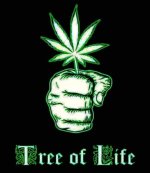Chronicles 16 - 19
16 Whose sisters were Zeruiah, and Abigail. And the sons of Zeruiah; Abishai, and Joab, and Asahel, three.
17 And Abigail bare Amasa: and the father of Amasa was Jether the Ishmeelite.
18 And Caleb the son of Hezron begat children of Azubah his wife, and of Jerioth: her sons are these; Jesher, and Shobab, and Ardon.
19 And when Azubah was dead, Caleb took unto him Ephrath, which bare him Hur.
Women are named because one's Judaism comes from one's mother, not one's father. Not rocket science to point out, but some people are just determined to keep clinging to to their agendas.
Different era; Chronicles has a different goal than the Genealogies in the NT. Some people can't handle timelines and note the old testament spans a long time. Even after Ezra changed up the racial purity laws to trace 'legitimate' lineages through the mother they still weren't included in family genealogies; they still only listed male relatives. Mathe in fact names a woman, but then the Christian sect was a reform sect, not a traditional one.
With all the information Jewish genealogical sites offer, why are women so often left out?

jwa.org
Some women are listed in the bible because of their exceptional stories.
Following up on my previous post, this is the essay I wrote after my first one was rejected. They published it, only after deleting several sections about Miriam's life and about gender in Jewish life. It was incredible to me. In an essay about the many ways women's lives are erased, they erased...

jewfem.com
"Certainly, we are accustomed to the near-complete absence of women from these lineage-chapters in the Bible. We take for granted that biblical lineage is a guy thing. However, Professor Rachel Elior, however, who has done extensive research on the Dead Sea scrolls, argues that the choice of male-only genealogies is also part of an agenda. In fact, she says, many scrolls that have been discovered include both male and female ancestors and descendants. Although we cannot be sure why the male-only texts were eventually chosen to be in the canon – Professor Elior argues that it is because of the reluctance of the editors to admit that the world would have begun with incest, with the male and female sibling children of Adam and Eve progenerating – the fact is that the choice of male-only lineages has a very pronounced role in our communal subconscious bias. It is one of the most powerful tools for maintaining patriarchal perceptions and practices in Jewish life. The idea that only sons count, that only men take on official titles and roles, and that only men were priests, justifies many practices in our tradition. It is one of the key influencing cultural factors in so many communities only men count for a prayer quorum, only men can be rabbis, and only men can take on roles such as judges, priests, and even witnesses. Moreover, even in liberal communities that have broken down some of these practices over the past 30-40 years, perceptions of Jewish leadership as male are still pronounced. The domination of men not only in the rabbinate and in "priestly" clerical roles but also in areas such as lay leadership, salaries, inclusion on panels, and more, are unfortunate facts of Jewish life across communities. (See
here an infographic on the topic.)"
Finding a tiny handful of exceptions to the rule requires examining context and purpose, which of course requires a study of Jewish culture and Christian reforms of that culture to embrace the universalism implied not just by Moses in the written Torah but by the entire premise of monotheism itself as a construct.


